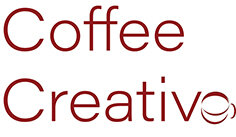Dr. Seuss and the art of journalism – why it matters.
One Autumn morning, I sat at a new coffee shop talking to a Communications student from the University of Queensland.
The coffee shop and the student were still figuring out what they had to offer. The student, however, was still pondering his potential life path rather than on the quality of the crème on his latte. The student, an undergraduate from Singapore, had decided to pursue work in public relations rather than journalism.
As a long-term questioner of the status quo, a dedicated follower of the art and craft of journalism, I sat quietly dumbfounded, then rattled around in my grab-bag of questions to find the best one. I placed aside who and what, rested when, ignored how and settled for why.
“Journalism,” he insisted, “was just about the big stories." He was sure it was about stories of war and peace, the unsolvable divide between rich and poor, the existential threat, the stories of the great and the good, the heart of democracy, the stories of the unsolvable problem that is the human condition.
He was sure that as he loved storytelling, he’d follow a simpler storyteller’s path and become a doctor of spin – a PR consultant. His path, he thought, would be a path that pursued less lofty ideas and so placed a lighter weight on his shoulders.
Now, don’t get me wrong. Public Relations is a good thing – I do it. It is a performance art that wraps its arms around an idea and dances with it with a satisfying sense of the sublime rhythm. Stare into PR and it will smile back. It is the cheerful face of capitalism. It is the persuasive voice of politics, the ultimate pursuer of the upsell. It is Father Christmas and the Easter bunny of brand development, the proverbial Peter Pan of politics riding on a wave of happy thoughts. And community, commerce, and political endeavour all rely on PR – and we thank them for it. That’s not a trivial endeavour – storytelling never is.
But journalism, I said as I rolled up my sleeves, journalism looks at many things, perhaps an audience, perhaps a community, perhaps a democracy, the only thing that is understood is that it is not about the big picture. It doesn’t paint the small picture large or the big picture small. It paints every picture as it is or as it is seen to be – in that moment.
“unless someone like you cares a whole awful lot, nothing is going to get better. It's not.”
Sure, journalism covers war, and politics, economics, and human stuff. It is about the noble art of chasing an understanding of how things affect us. It is about you and me, about our lives, the happiness and the sadness, the things that impact us or impact those we love. It is the local story – the trouble is, I said to my undergraduate colleague, “we don’t always know who is the us.”
So, as we live in an information landscape – a digital world still developing a new idea of us, of our digital customs, of our digital systems and how we fit, we know our definition of journalism is not about sweating the big or little stuff. No, no, no. It is far more important.
I suspect that Dr Seuss knew what journalism was and is. I suspect that he knew that journalism, my friend, is about the opportunity to “Learn from yesterday, live for today, hope for tomorrow.” And that’s the privilege of journalism – it is the joy we find in caring enough to question and questioning enough to care. That is because, “unless someone like you cares a whole awful lot, nothing is going to get better. It's not.”


